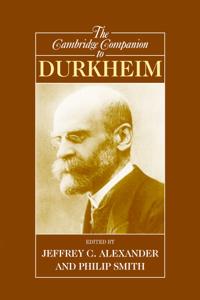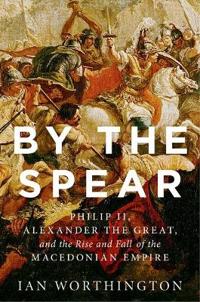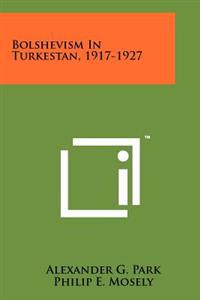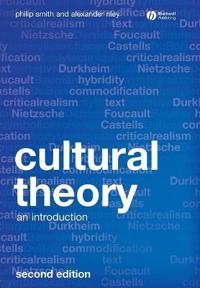Widening Sphere, A: Evolving Cultures at MIT (Övrig)
avPhilip Alexander
ISBN: 9780262015639 - UTGIVEN: 2011-03-11MIT was founded in 1861 as a polytechnic institute in Boston's Back Bay, overshadowed by its neighbor across the Charles River, Harvard University. Harvard offered a classical education to young men ofAmerica's ruling class; the early MIT trained men (and a few women) from all parts of society as en[...]
Behavioural Economics And Business Ethics (Inbunden)
avPhilip Alexander Rajko
ISBN: 9780415682640 - UTGIVEN: 2011-08-12Economics and moral philosophy have in recent years been considered to be distinct and separate fields. However, behavioural economics has started to reconcile various aspects of morality and economics, which has offered new conceptual opportunities to advance economics ethics and business ethics. T[...]
Alexander the Great (Pocket)
avPhilip Freeman
ISBN: 9781416592815 - UTGIVEN: 2011-10Alexander the Great (Alexander III of Macedon) was one of history's great generals, a man studied by Caesar and Napoleon, among hundreds of others. He was born to the king of Macedon and educated by Aristotle, whose inquiring mind Alexander appreciated. After his father, Philip II, was assassinated,[...]
Philip's Daughters: Women in Pentecostal-Charismatic Leadership (Häftad)
avEstrelda Alexander, Amos Yong
ISBN: 9781556358326 - UTGIVEN: 2008-10The Cambridge Companion to Durkheim (Pocket)
avJeffrey C. (EDT) Alexander, Philip (EDT) Smith, Jeffrey C. (EDT) Alexander
ISBN: 9780521001519 - UTGIVEN: 2005-06Long recognised as a foundational figure in the development of social scientific thought, Emile Durkheim?s work has been the subject of intense debate over the years. This authoritative and comprehensive collection of essays re-examines the impact of Durkheim's thought, considering the historical co[...]
They Might Be Giants' Flood (Pocket)
avS. Alexander Reed, Philip Sandifer, S. Alexander Reed
ISBN: 9781623569150 - UTGIVEN: 2013-11For a few decades now, They Might Be Giants' album 'Flood' has been a beacon for people who might rather read than rock, who care more about Dali than Dokken, who are more often called clever than cool. The brainy sort of kids who listened to the band saw their own cultural options grow explosively [...]
By the Spear: Philip II, Alexander the Great, and the Rise and Fall of the Macedonian Empire (häftad)
ISBN: 9780190614645 - UTGIVEN: 2016-11Alexander the Great, arguably the most exciting figure from antiquity, waged war as a Homeric hero and lived as one, conquering native peoples and territories on a superhuman scale. From the time he invaded Asia in 334 to his death in 323, he expanded the Macedonian empire from Greece in the west to[...]
By the Spear: Philip II, Alexander the Great, and the Rise and Fall of the Macedonian Empire
ISBN: 9780199929870 - UTGIVEN: 2014-05Alexander the Great, arguably the most exciting figure from antiquity, waged war as a Homeric hero and lived as one, conquering native peoples and territories on a superhuman scale. From the time he invaded Asia in 334 to his death in 323, he expanded the Macedonian empire from Greece in the west to[...]
The Calendar (Häftad)
avAlexander Philip
ISBN: 9781107640214 - UTGIVEN: 2012-01Originally published in 1921, this book provides a concise guide to the Western Calendar. Information is provided on its origin and development, the principles of its construction, the purposes for which it is employed, its deficiencies and the means by which these deficiencies can be amended. The t[...]
Bolshevism in Turkestan, 1917-1927 (Häftad)
avAlexander G. Park, Philip E. Mosely
ISBN: 9781258178277 - UTGIVEN: 201110Cultural Theory: An Introduction (Häftad)
avPhilip Smith, Alexander Riley
ISBN: 9781405169073 - UTGIVEN: 200808This second edition of "Cultural Theory" provides a concise introduction to cultural theory, placing major figures, traditional concepts, and contemporary themes within a sharp conceptual framework.Provides a student-friendly introduction to what can often be a complex field of studyUpdates the firs[...]
Cultural Theory: An Introduction, 2nd Edition (Inbunden)
avPhilip Smith, Alexander Riley
ISBN: 9781405169080 - UTGIVEN: 2008-09-30Functional or dysfunctional - the law as a cure? (Häftad)
avJr. Coffee, Rowan Russell, Angela Itzikowitz, Philip R Wood, Kern Alexander, Jesper Lau Hansen, , Klaus J. Hopt
ISBN: 9789172235823 - UTGIVEN: 2014-09-12On August 29-30 2014 the Marianne and Marcus Wallenberg Foundation in co-operation with the Stockholm Centre for Commercial Law arranged an International legal symposium under the heading "Functional or dysfunctional - the law as a cure? Risks and liability in the financial markets". The symposium w[...]















